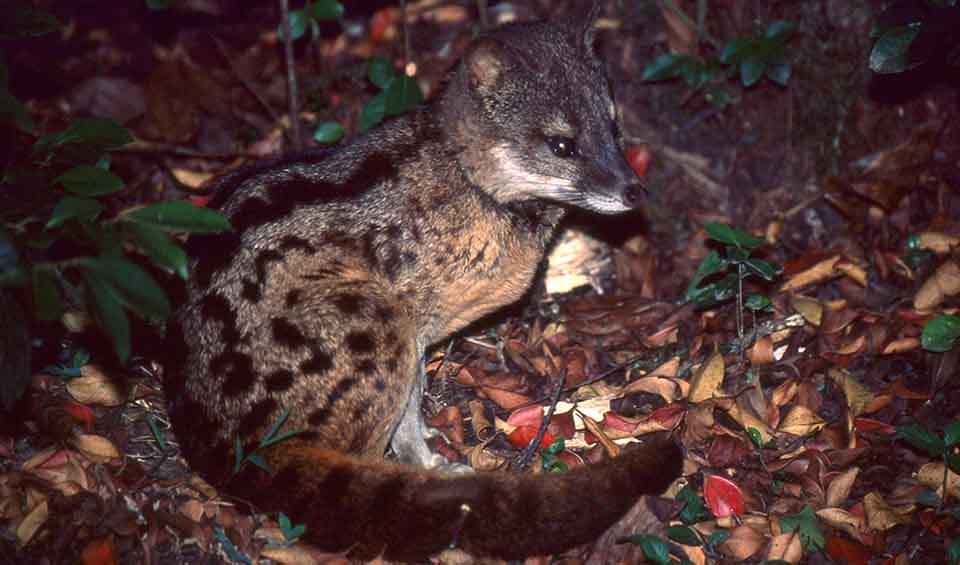Fossa – Malagasy civet
Despite its name, it is not a true civet
The Malagasy civet (Fossa fossana), also known as the fanaloka, is a small, nocturnal predator found only in Madagascar, and one of the island’s many unique mammals. It’s more closely related to the island’s other endemic carnivores, like the fossa and the ring-tailed vontsira, than to the civets of Africa or Asia. Still, with its long body, short legs, and pointed snout, it looks very much like a classic civet, which is how it earned its common name.
The Malagasy civet is a small and slender animal, about the size of a domestic cat. It has soft, grayish-brown fur patterned with dark stripes and spots along its back and flanks, and a bushy tail with rings or bars—features that provide excellent camouflage in the dim light of the forest floor. It lives in the humid rainforests of eastern Madagascar, where it quietly prowls the undergrowth at night in search of food.
As a nocturnal carnivore, the Malagasy civet is mostly active after dark, using its keen sense of smell and hearing to locate prey. It feeds on a variety of small animals, including insects, rodents, reptiles, frogs, and birds, and will also eat eggs and sometimes fallen fruit. It hunts alone and is generally shy, rarely seen by people unless spotted crossing a path at night or caught on camera traps. During the day, it shelters in tree hollows, dense vegetation, or burrows, resting until it’s safe to emerge again.
Species in this genus
Malagasy civet
Despite its name, it is not a true civet


